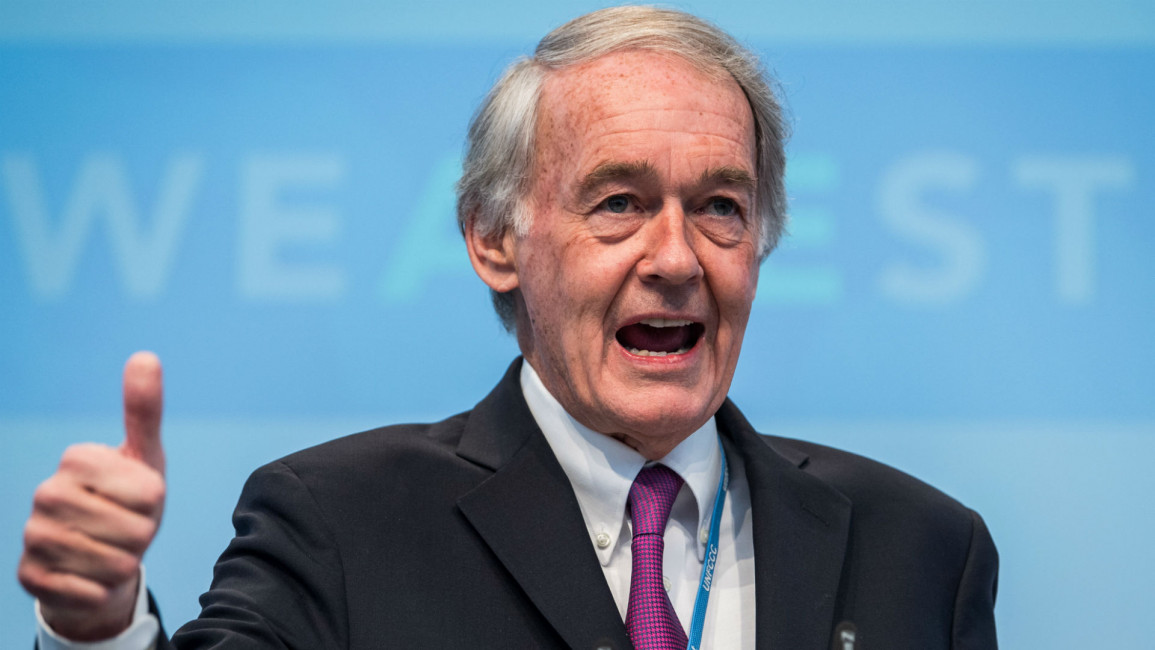US legislator concerned about 'US-Saudi nuclear deal'
Riyadh plans to announce who will construct the first two of up to 16 reactors at the beginning of March, and negotiations are under way with the United States for its agreement to export technology needed for their construction.
Democratic Senator Ed Markey, of Massachusetts, says any deal is "almost certain" to require a non-proliferation accord, known as a "123 agreement," that is designed to prevent the spread of nuclear weapons.
"Previous US efforts to conclude a 123 agreement with Saudi Arabia have been unsuccessful because of its long-standing refusal to commit to foregoing any uranium enrichment or spent-fuel reprocessing on its territory - the so-called... 'gold standard' for 123 agreements," Markey, of the Senate Foreign Relations Committee, said in a letter to Secretary of State Rex Tillerson and Energy Secretary Rick Perry.
His concerns come with US-Iran tensions high over the civil nuclear programme of Riyadh's regional rival Tehran.
US President Donald Trump has threatened to tear up a 2015 global pact under which Iran - facing suspicions it was working towards a nuclear bomb - agreed to curb its nuclear programme in exchange for a lifting of sanctions.
Both Washington and Riyadh have complained of Iran's "destabilising" acts in the Middle East.
Markey says Saudi Arabia's "unwillingness" to commit to a "gold standard" 123 agreement "is particularly concerning in light of comments made by Saudi officials and members of the royal family suggesting that a nuclear programme may be as much for geopolitical purposes as for electricity generation."
| Read also: The cautious détente between Saudi Arabia and Israel |
According to US media, Saudi Arabia's Crown Prince Mohammed bin Salman - the main driver of a more aggressive regional push by the kingdom - is to visit the United States in early March to meet with Trump.
The visit has not been officially confirmed by either country.
Ties between the kingdom and Washington have strengthened since Trump assumed office early last year. His first official trip abroad was to Saudi Arabia, which is trying to diversify its oil-based economy and energy sources.
In his letter dated Monday, Markey asks the two US officials to explain "the impetus for renewed discussions on a nuclear cooperation agreement between the United States and Saudi Arabia."
He also questions whether the kingdom asked the US administration "to consider concluding a 123 agreement that does not include the gold standard or did the Trump administration independently decide to consider this prospect?"
In mid-February on the sidelines of a conference in Munich, Saudi Arabia's Foreign Minister Adel al-Jubeir, speaking with US television channel CNBC, suggested Riyadh could turn to other countries if the Trump administration did not support its civil nuclear programme.
Besides the US company Westinghouse, Russian, French, Chinese and South Korean firms have all been seeking the Saudi contracts.
Markey on Tuesday said that Perry, who will reportedly meet Saudi officials including Energy Minister Khaled al-Faleh in London, must brief him, and the rest of the Foreign Relations Committee, "on what transpired during his trip" upon his return.
"And the Trump administration must explain more fully... why it is considering compromising" in a potential 123 agreement with Saudi Arabia.



